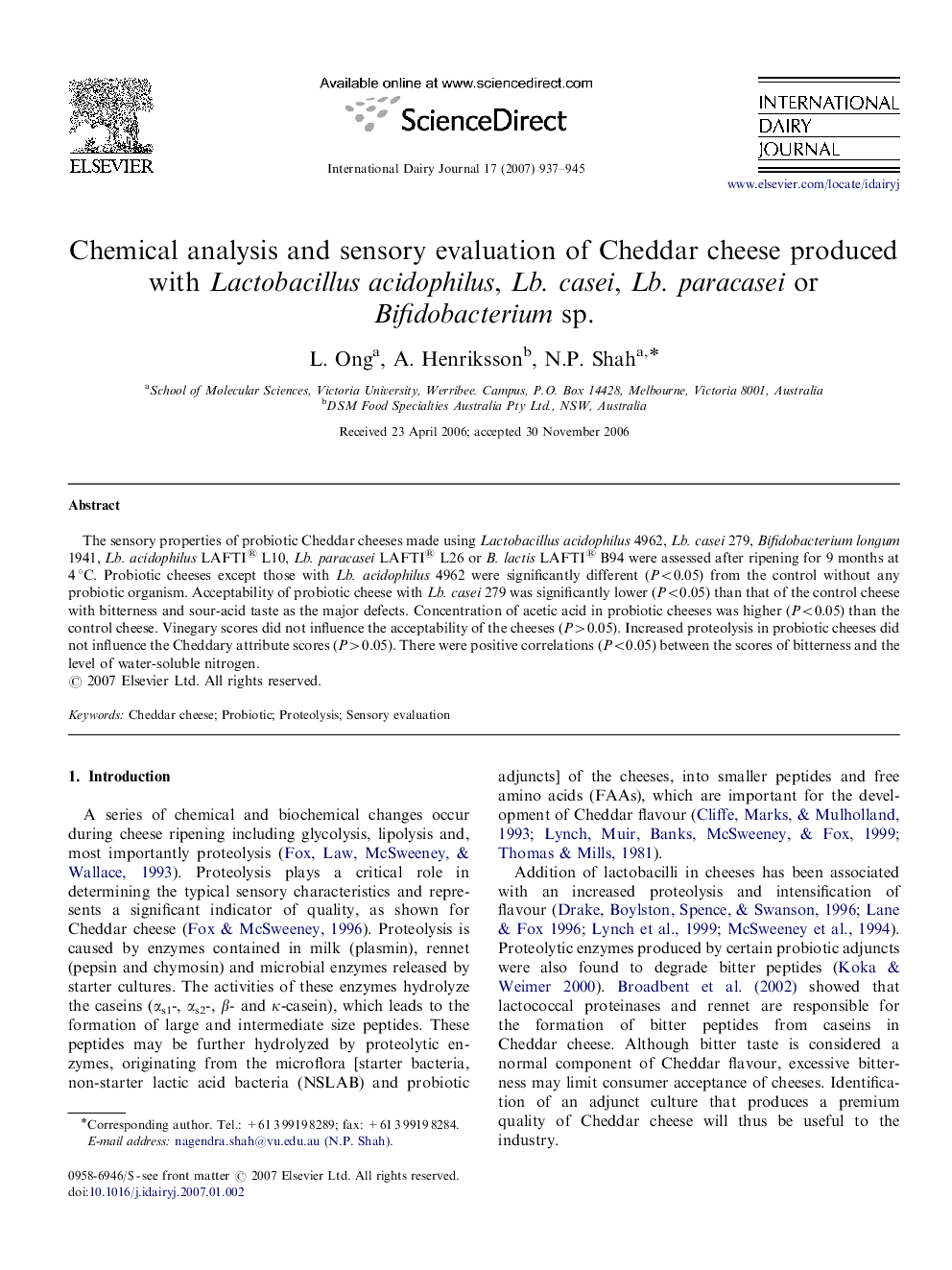| Article ID | Journal | Published Year | Pages | File Type |
|---|---|---|---|---|
| 2435419 | International Dairy Journal | 2007 | 9 Pages |
The sensory properties of probiotic Cheddar cheeses made using Lactobacillus acidophilus 4962, Lb. casei 279, Bifidobacterium longum 1941, Lb. acidophilus LAFTI® L10, Lb. paracasei LAFTI® L26 or B. lactis LAFTI® B94 were assessed after ripening for 9 months at 4 °C. Probiotic cheeses except those with Lb. acidophilus 4962 were significantly different (P<0.05) from the control without any probiotic organism. Acceptability of probiotic cheese with Lb. casei 279 was significantly lower (P<0.05) than that of the control cheese with bitterness and sour-acid taste as the major defects. Concentration of acetic acid in probiotic cheeses was higher (P<0.05) than the control cheese. Vinegary scores did not influence the acceptability of the cheeses (P>0.05). Increased proteolysis in probiotic cheeses did not influence the Cheddary attribute scores (P>0.05). There were positive correlations (P<0.05) between the scores of bitterness and the level of water-soluble nitrogen.
